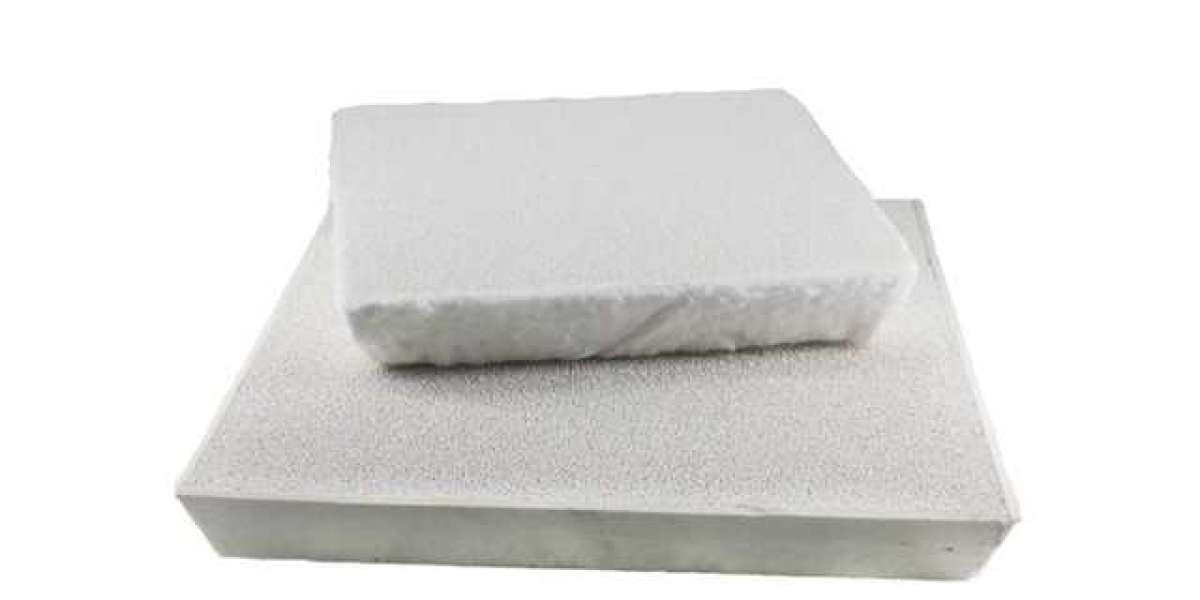Alumina ceramic foam filter for foundry is used to filter impurities in aluminum and aluminum alloy when molten metal enters the mold. Clean liquid metal can produce higher quality castings, less scrap and fewer inclusion defects.
In recent years, Al2O3 ceramic foam filter has been developed as a new type of molten metal filter to reduce casting flow. The alumina ceramic foam filter for foundry can effectively remove the inclusions, reduce the gas in the liquid metal, and provide laminar flow, and then the filtered metal becomes cleaner.
In this research, a bentonite ceramic filter containing Al2O3 was developed instead of a honeycomb ceramic filter in order to obtain laminar flow and control the rate of molten aluminum. Use replication technology to make reticulated ceramic foam from the sponge. Bentonite is used to bind alumina particles at room temperature and sintering temperature. The number of holes per inch and the hole diameter are optimized to obtain sufficient molten aluminum flow. The surface characteristics of the foundry ceramic filter have also been improved to control the flow rate.
Filtration is one of the most typical refined casting processes to eliminate non-metallic and intermetallic inclusions in the aluminum alloy casting process. The refining of the melt can improve the uniformity of the metal, improve the mechanical properties, remove many metallurgical defects, improve the surface of the casting and significantly improve the machinability.
The main sources of inclusions are slag metal oxidation products, refractory materials, refining agent residues, casting materials and erosion, endogenous inclusions in the metal and undissolved inoculants or alloy addition residues.
The filtration process is a complex mechanism that is affected by fluid dynamics factors such as fluid flow, turbulence, surface and physical forces, as well as chemical and metallurgical interactions between inclusions, filter media and liquid metal.
The use of ceramic foam filter for metal filtration is an effective means to control the level of inclusions. The foam filter is believed to have a unique, twisted pipe passing through its body, which traps inclusions and allows a clean laminar melt flow into the mold cavity. The ceramic foam filter has an open-cell and window structure, has a very high porosity, and a very high surface area to trap inclusions.



